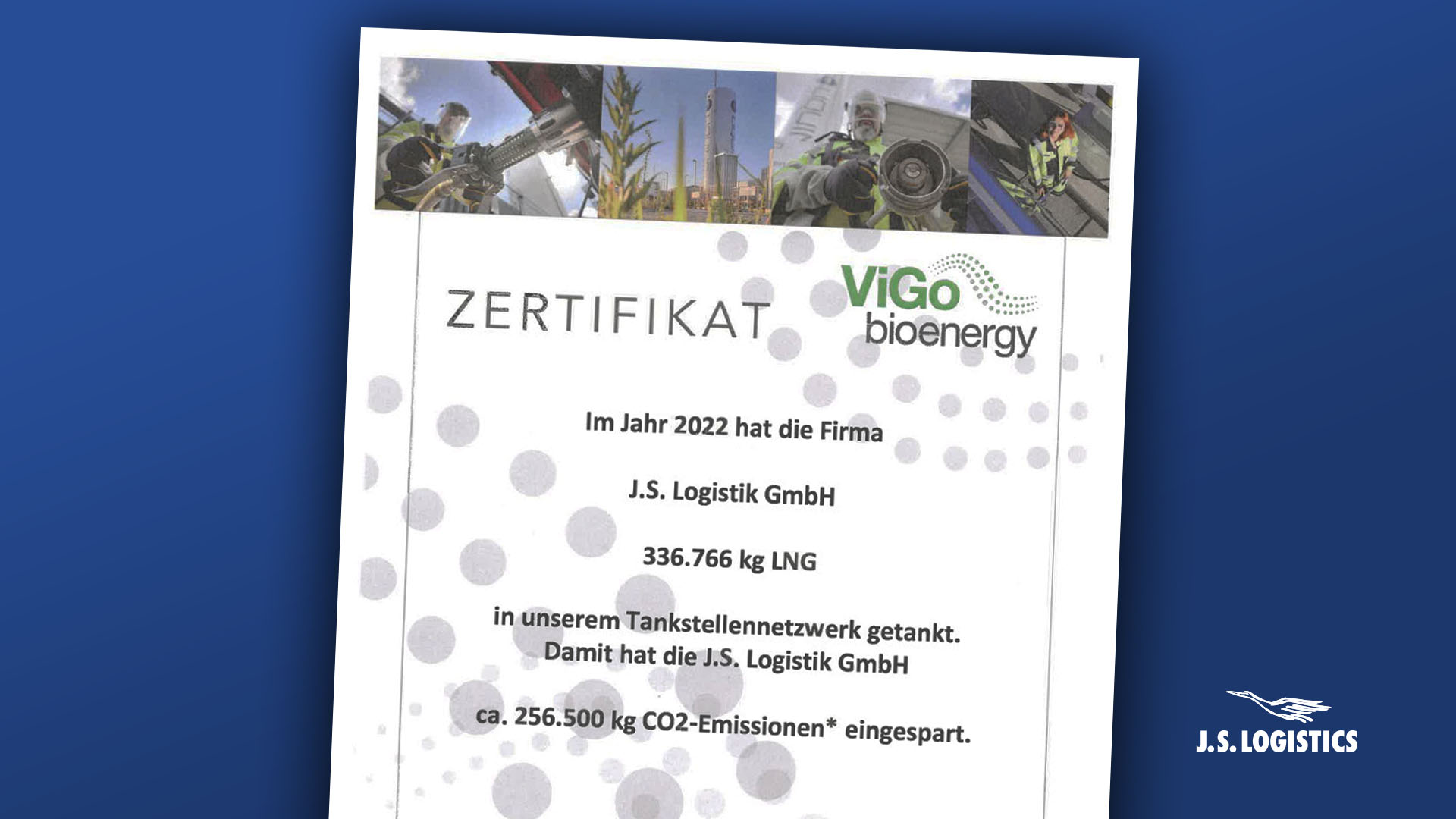21. März 2023
A saving of over 250 tonnes of CO2 using LNG fuel


CO² emissions play a large role in logistics. So J.S. Logistics has decided to fuel our fleet with the CO²-reduced fuel LNG (Liquefied Natural Gas).
By doing so, we are making our contribution to the decarbonization of heavy goods vehicles.
We would like to be actively involved in the transformation of traffic and make logistics and the transport industry greener and more sustainable.
Last year, by fuelling with 336,766 kg LNG, we achieved a CO² saving of 256,500 kg of CO². (You will find our certificate from Vigo Bioenergy at the end of the article). In addition to the CO² savings, using Liquefied Natural Gas, the emissions of sulphur dioxide and fine dust have been nearly completely reduced compared to diesel, and approx. 85% fewer nitric oxide emissions were created. * Although the cost per kilogram of LNG has increased significantly in the last 2 years, we have focused on the sustainable fuel.
The acquisition costs are approximately 60% higher than diesel fuel. This is an annual additional expense of over 356 thousand Euros in direct comparison.
We are in constant contact with LNG providers and hope that we will primarily use fuel with BIO-LNG in 2023. Using BIO LNG, the CO² emissions can be cut down by up to 95%. J.S. Logistics will continue to rely on environmentally friendly and sustainable technologies in the future.
Bio-LNG (liquid biomethane) is a locally produced fuel made from a biogas of sludge, dung, organic household waste or agricultural waste. This biogas is treated and liquefied into Bio-LNG, consisting of nearly 100% methane. *
*Sources: https://fluessiggas.de/wissen/gewerbe/lng-lkw/, https://rolandelng.de/bio-lng/